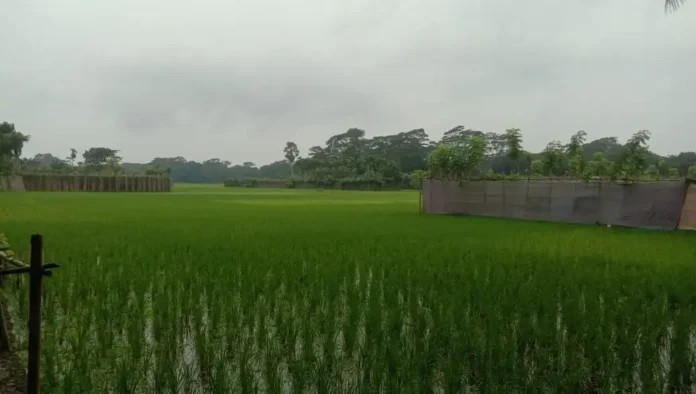Dhaka, Bangladesh, September 11, 2024 – Bangladesh has made remarkable strides in agriculture, transitioning from a food deficit nation to self-sufficiency in essential commodities. Small farmers, researchers, and government initiatives have driven this progress. Over the past five decades, the country has quadrupled rice production and made significant advancements in vegetables, fruits, fish, meat, and dairy production. Bangladesh is now a leading player in global agriculture.
However, new challenges arise as rapid urbanization, economic growth, and rising demand for nutritious food pressure the agricultural sector. Agriculture in Bangladesh must diversify and modernize to meet these demands. Leveraging technology will enhance productivity, sustainability, and market access. The sector must also adapt to climate change.
Embracing Smart Agriculture and Data-Driven Solutions
Bangladesh’s agricultural sector is ready for a technological transformation. The growing demand for safe and sustainable food highlights the need for smart agricultural technologies. Bangladesh must adopt data-driven solutions to compete in local, regional, and international markets. Smart agriculture integrates technology into farming to improve efficiency and productivity.
Farmers use sensors, IoT, and cloud computing to monitor crop health, weather patterns, and soil conditions in real-time. Mobile phones give them access to this data, enabling informed decisions on planting, irrigation, and harvesting. These tools help reduce waste, conserve water, and increase yields while addressing climate change risks.
The government emphasizes smart technologies, recognizing that traditional farming may not meet the growing population’s needs. Climate-smart agriculture prioritizes resilient and sustainable farming practices. These practices help farmers adapt to changing weather and reduce post-harvest losses, ensuring a stable food supply.
The Challenges of Climate Change
Bangladesh faces significant climate change risks, threatening agricultural productivity and food security. The country’s geography, with vast river systems and coastal areas, makes it vulnerable to flooding, cyclones, and rising sea levels. During the monsoon season, up to 60 percent of the land is submerged, while water becomes scarce during the dry season. Managing water resources is crucial for sustaining agriculture in Bangladesh.
Over the past 30 years, Bangladesh has invested in flood control, drainage, and irrigation projects to support agriculture. However, climate change challenges the sustainability of these investments. The government’s Bangladesh Delta Plan 2100 and Eighth Five-Year Plan focus on accelerating agricultural commercialization to ensure sustainable, safe, and diverse food products.
The plans aim to improve irrigation efficiency, reduce water scarcity vulnerability, and boost water productivity. These strategies are vital for sustaining agricultural growth in a changing climate.
The Importance of Water Resource Management
Effective water management is critical to Bangladesh’s agricultural strategy. Efficient water use supports both agricultural production and rural livelihoods. Water management efforts focus on flood control, irrigation, drainage, and integrated water systems to balance agriculture with climate challenges.
The government must prioritize institutional reforms in water resource management agencies to ensure long-term success. Inclusive stakeholder participation, combined with sustainable operation and maintenance, is essential for effective water resource management.
The Agro-Food Processing Industry
The agro-food processing industry drives Bangladesh’s economic growth, contributing over 22 percent to the country’s manufacturing output. It employs about 20 percent of the labor force and accounts for 2 percent of GDP. Bangladesh is home to nearly 700 food processing enterprises, including small-scale units.
Agricultural exports, especially from the fisheries, agriculture, and jute sectors, have seen impressive growth. The crop sector, particularly potatoes, vegetables, pulses, oilseeds, and spices, has significantly boosted exports. In the fiscal year 2021-22, agricultural-industrial exports reached Tk 282.3 billion, marking a 272 percent increase since 2006-07.
With Bangladesh’s growing presence in export markets, improving the quality of processed food and expanding into new global markets will be key to future growth.
The Impact of the Fourth Industrial Revolution (4IR) on Agriculture
The Fourth Industrial Revolution (4IR) offers Bangladesh a unique chance to transform its agricultural sector. Advanced technologies like artificial intelligence, robotics, and data analytics can revolutionize farming practices. These technologies help farmers access real-time data on soil conditions, weather, and crop health.
Farmers can make informed decisions, reduce costs, and increase productivity. Agricultural robotics also reduce labor costs and improve the quality of agricultural systems. The “Digital Bangladesh” initiative seeks to integrate these technologies into the rural economy, creating job opportunities and transforming the agricultural landscape.
Towards a Smart Agricultural Revolution
Bangladesh’s agricultural sector is poised for a smart revolution. The country must address climate change, resource management, and market demand to continue growing. Agriculture in Bangladesh needs investment in research, innovation, and sustainable practices to increase productivity and efficiency.
The government’s Vision 2030 growth strategy focuses on smart farming and climate-smart technologies. Bangladesh is well-positioned to lead a new agricultural revolution. This shift will strengthen agriculture, improve livelihoods, and ensure a more sustainable and food-secure future.
Conclusion
Bangladesh’s journey toward smart agriculture showcases its resilience and innovation. By embracing smart technologies, improving water resource management, and addressing climate change, Bangladesh is paving the way for a sustainable agricultural future. Continued investment and collaboration will ensure that agriculture remains a pillar of the nation’s economy, providing food security and stability for future generations.


